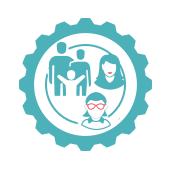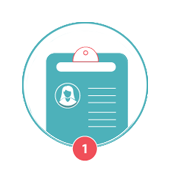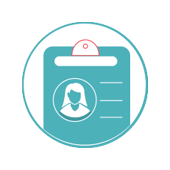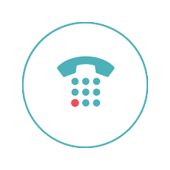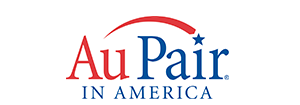- Find out more information about the Test of English as a Foreign Language (TOEFL).
- For information about education in your community, click here and follow the links to your state.
Au pairs can fulfill the educational component in different ways. The choice you make will depend largely on the educational opportunities in your community and your work schedule. To meet the requirement, it is possible you will need to supplement the education allowance with your own money, so plan carefully.
Facts about the education requirements:
Standard au pairs and au pairs on the Extraordinaire program are required to take 6 credits (or the equivalent of approximately 80 hours in the classroom) over the course of their year. EduCare Au Pairs are required to take 12 credits (approximately 160 hours). Credits must be earned at an approved, accredited program or institution.
Standard au pairs and au pairs on the Extraordinaire program who extend their visa are expected to take an additional 3 credits for a 6-month extension and 6 credits over a 9- or 12-month extension. EduCare Au Pairs must take 6 credits for a 6-month extension and 12 credits over a 9- or 12-month extension.
6 credits = approximately 80 hours in the classroom = approximately 8 CEUs
You can use any combination of hours, credits, or CEUs as long as they add up to the required number of hours. As an example, if you are taking a 3-credit course that meets 3 hours a week for 15 weeks, that course is 45 hours. If you are taking a course that grants CEUs (continuing education units), each CEU is equal to 10 hours of instruction. Non-credit courses are counted by the number of hours spent in the classroom.
Your Community Counselor will be able to advise you on what is possible in your area. You can also review your options by reviewing the educational listings for your state. Click here to view those options.
Auditing Classes: Auditing allows students to attend a class with limited in-class participation, non-graded assignments, and no final grade. If auditing is available to the au pair, the cost may be less than for a credit course. Each individual college or university has its own audit policy.
CEU: Continuing Education Units is a nationally recognized method of quantifying the time spent in the classroom during professional development and training activities. Ten hours of instruction = 1.0 CEU.
Choosing Classes: Be flexible. Remember that your child care responsibilities come first. Class schedules need to be arranged with your host family and around your child care duties. Your favorite class may not be available when you are. Schools vary in what they offer, but most offer a wide range of choices and offer day, evening, and Saturday classes.
Completion of the Education Requirement: Education is an important part of your year in America. Take advantage of the opportunity and don’t forfeit your eligibility to extend and/or return to the U.S. as a return au pair. After returning to your home country, if you have completed the education requirement, you will receive a certificate of completion for participating in the program.
Continuing Education Courses: These classes are usually non-credit and are offered at some colleges and universities. These courses are designed for a purpose other than working toward a degree, usually for personal enrichment or career-specific skills.
Extending: In order to extend, you must show proof that you have completed the education requirement at an accredited U.S. post-secondary institution. To extend, your education requirement must be completed no later than the end of your 11th month. One or more of the following documents can be used to verify that you have completed your education:
- Letter from the school on letterhead
- Completion certificate from the school
- School transcript
All proof of education must state your name, school attended, course title, and number of credits/hours earned. Completed verification should be given to your Community Counselor. Your extension request will not be processed without this proof.
*If you are still in the process of completing your education, you must obtain proof from the school stating that the course(s) you are taking will conclude no later than the end of your 11th month of your program and the number of credits/hours/CEUs that you will earn. If you are registered for a course that has not yet begun, you must submit proof of registration indicating that the course will conclude no later than the end of your 11th month and the number of credits/hours/CEUs that you will earn. All proof of education must be given to your Community Counselor before your deadline to extend. Once your course is concluded you must send proof of the course completion to your Community Counselor.
Non-Credit Classes: Non-credit classes are offered at some colleges and universities. These courses are designed for a purpose other than working toward a degree, usually for personal enrichment or career specific skills.
Online Courses: Online courses do not meet the educational requirement for au pairs.
UCLA APIA Advantage Course: APIA has partnered with UCLA to create a 19-week interdisciplinary online course for 6 credits. This course has been specially-approved by the U.S. Department of State to meet the educational requirement for au pairs.
Unlike a typical online course, the blended online format of the APIA Advantage course allows au pairs to have face-to-face contact with their local communities. As a requirement of the course, au pairs are required to do a Global Awareness presentation, volunteer at a local organization, and participate in historical and cultural activities. To find out more about the course, please visit UCLA Extension, or ask your local community counselor for details.
Placement Tests: Many English as a Second Language (ESL) classes have placement exams. Some schools may require the TOEFL or other placement tests at the time of registration for other courses as well.
Post-Secondary Accredited Institution: A post-secondary institution offers at least a one-year program of college-level studies. An accredited institution is an institution officially recognized by a regional or national accrediting commission of schools and colleges. To verify the acceptability of a school, you should either ask your community counselor or contact the Education and Program Services coordinator at 1-800-928-7247 ext. 5580 or email education@aifs.com.
Proof of Education Completed: You may submit any of the following to your Community Counselor as proof of your education.
- Letter from the school on letterhead
- Completion certificate from the school
- School transcript
All proof of education must state your name, school attended, course title, start and end date of the course, and number of credits/hours earned. If your Community Counselor does not have proof that your education requirement has been completed, you will not receive a completion certificate upon your return to your home country and you forfeit the opportunity to extend.
Recognition: If you are taking a course for academic credit, you will receive a grade and an official transcript. If you are auditing or taking a non-credit course, recognition is at the discretion of the instructor.
TOFEL: For information about the Test of English as a Foreign Language, click here.
Transfer of Credits: If you are taking a course for academic credit and want to transfer credits home, it is up to the university in your home country to determine if they will accept that credit or not. It is the responsibility of the au pair to contact her home university if she is interested in transferring credit.
Transportation: Your host family is required to provide transportation, including gasoline, parking, or public transportation costs (if applicable) to and from classes in your community. The cost of transportation is in addition to the $500/$1000 allocated to tuition and related fees. It is your host family’s responsibility to provide transportation or cover the transportation costs until you complete your educational requirement, even if the $500 education allowance has already been spent.
Tuition: Host families reimburse tuition costs and costs of related materials (books and supplies) up to $500 for the first year. EduCare companions are reimbursed up to $1000 for the first year. If it will cost you more than $500 (or $1000 for EduCare) to meet the requirement, you must pay the additional expense, so plan carefully.
Still have questions? Ask your community counselor or contact the Education and Compliance Administrator at 1-800-928-7247 ext. 5028 or education@aifs.com.




